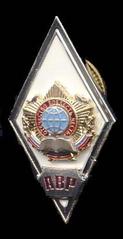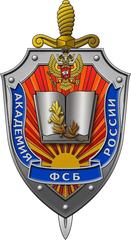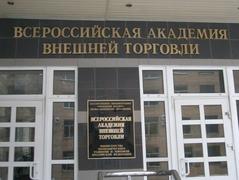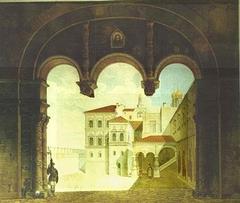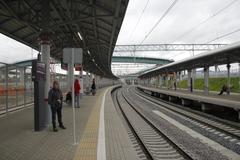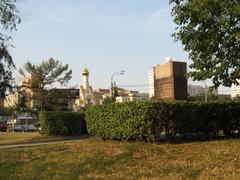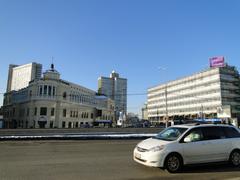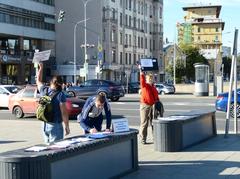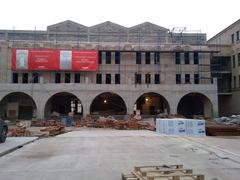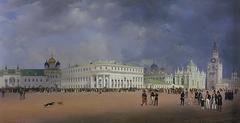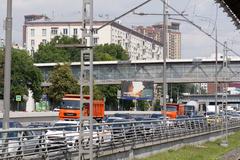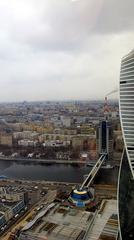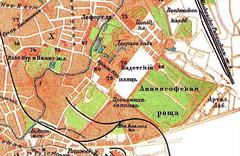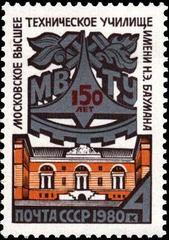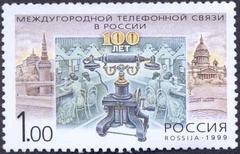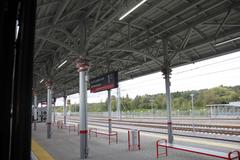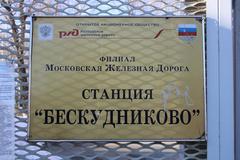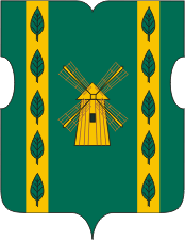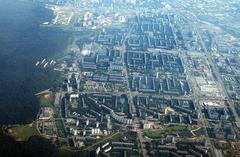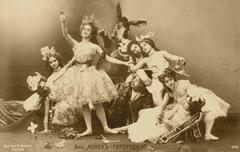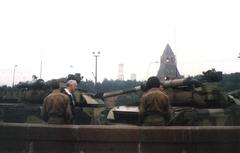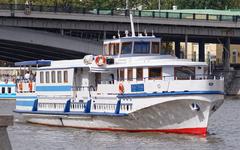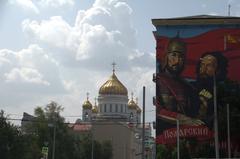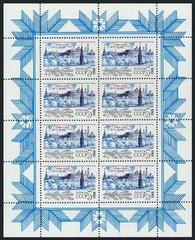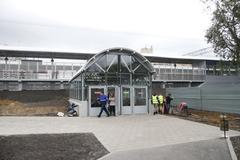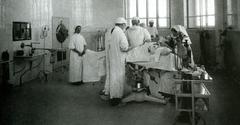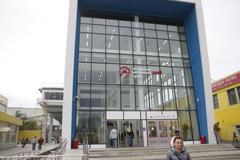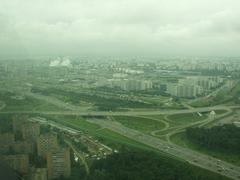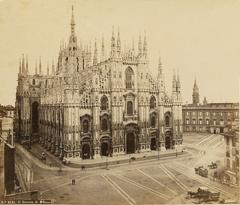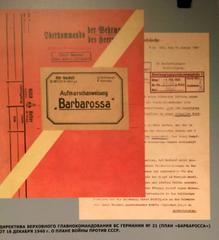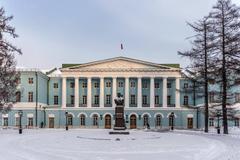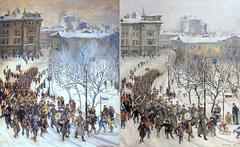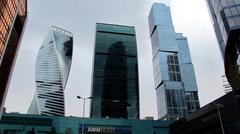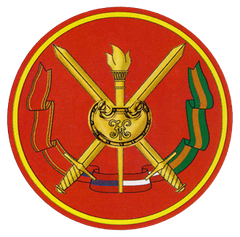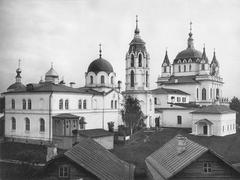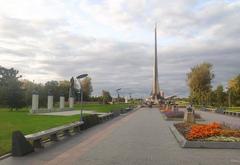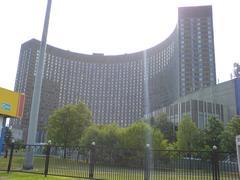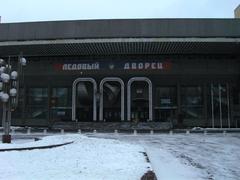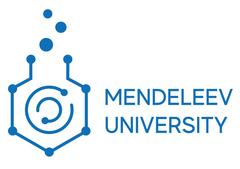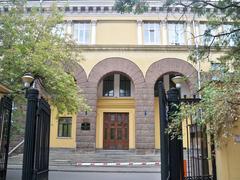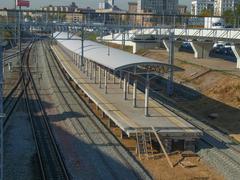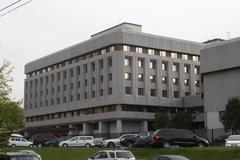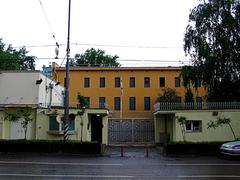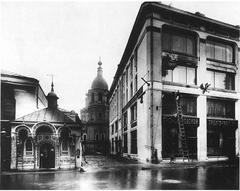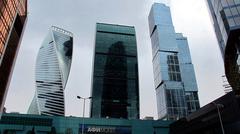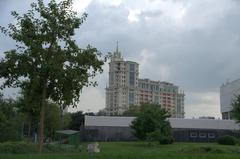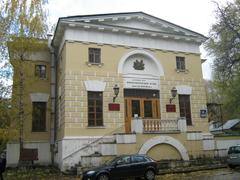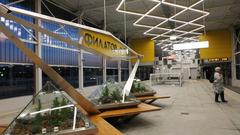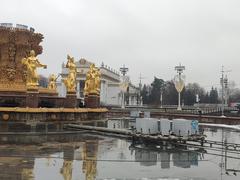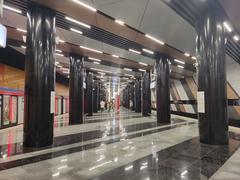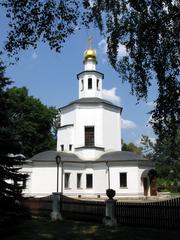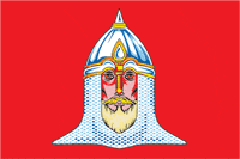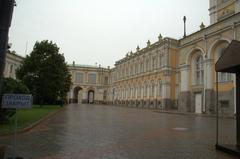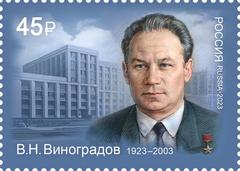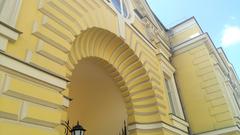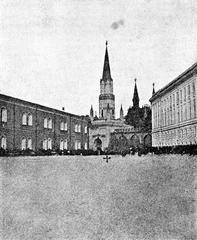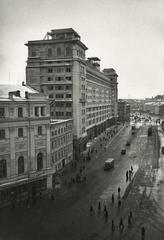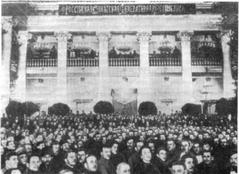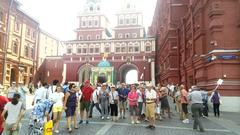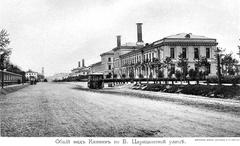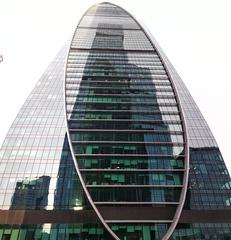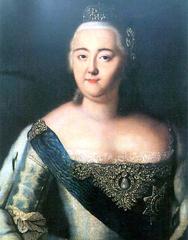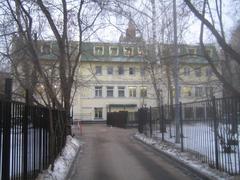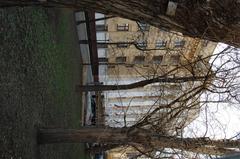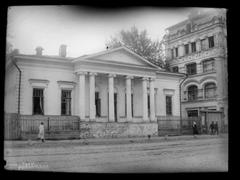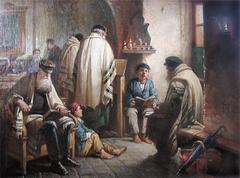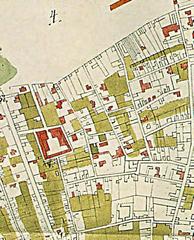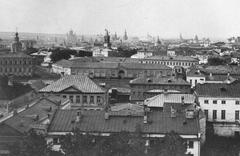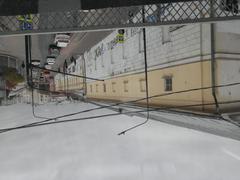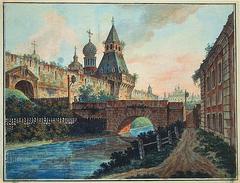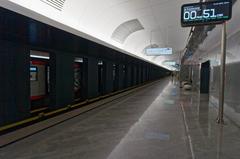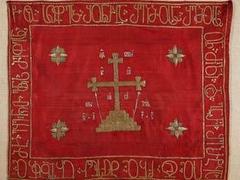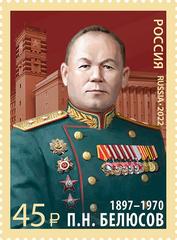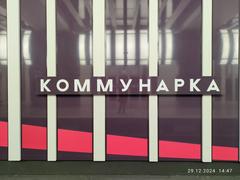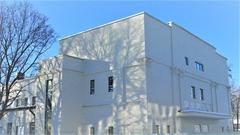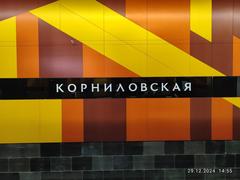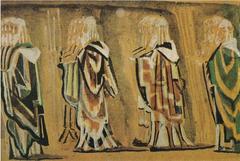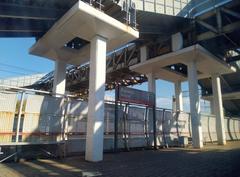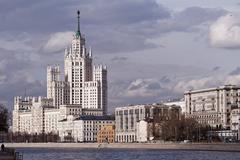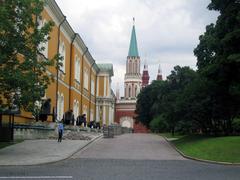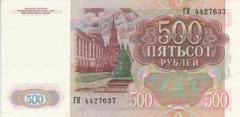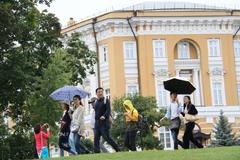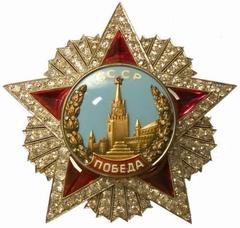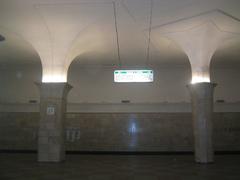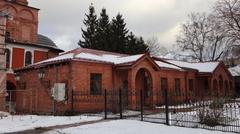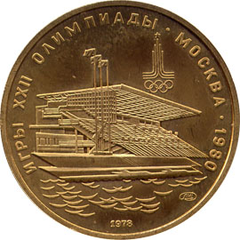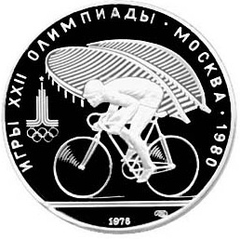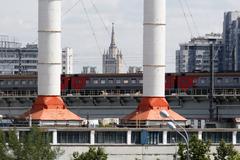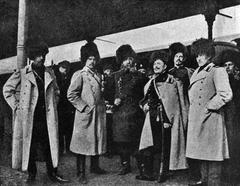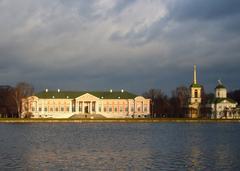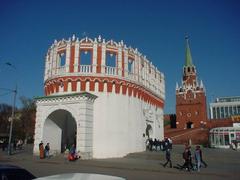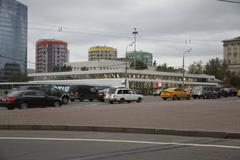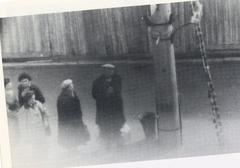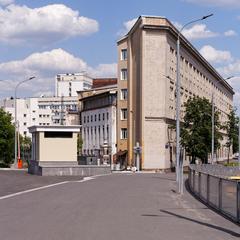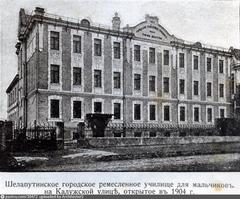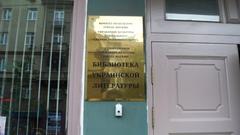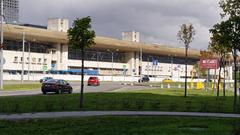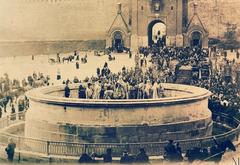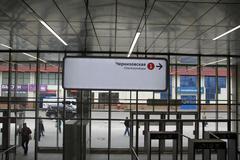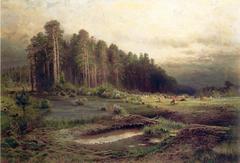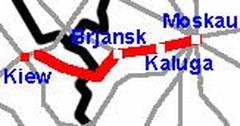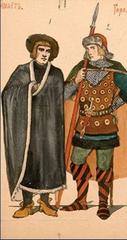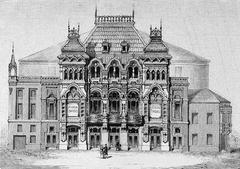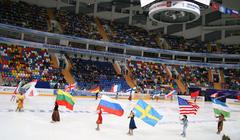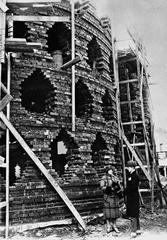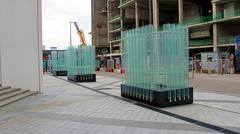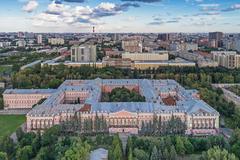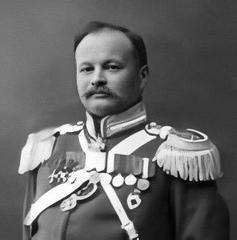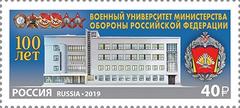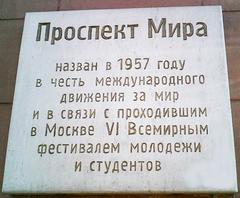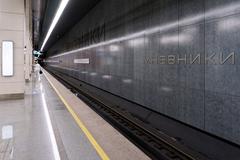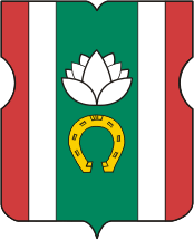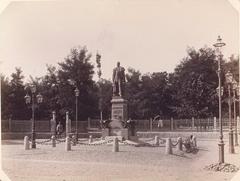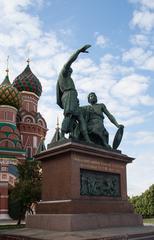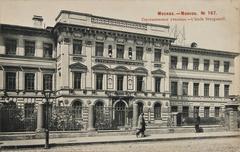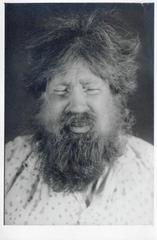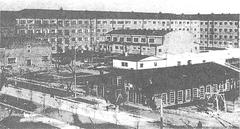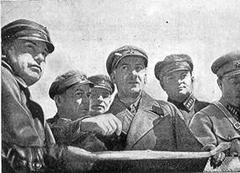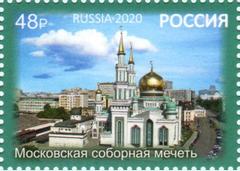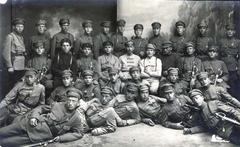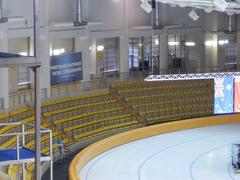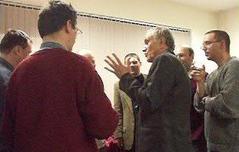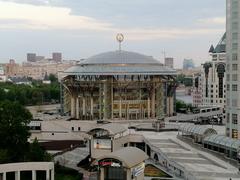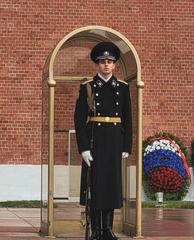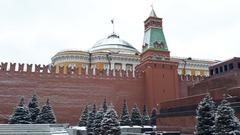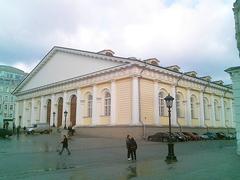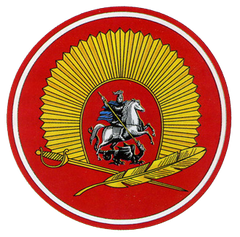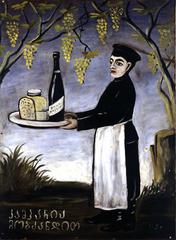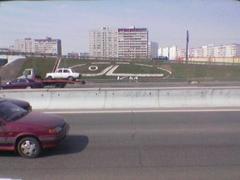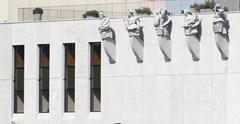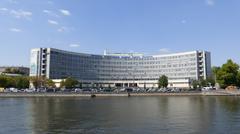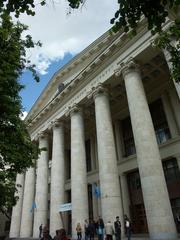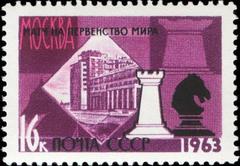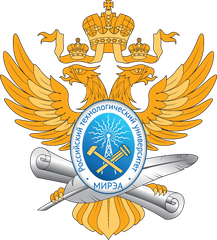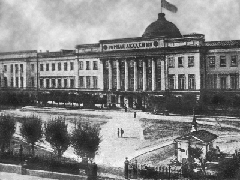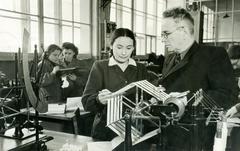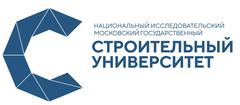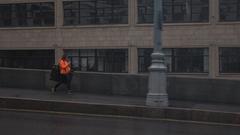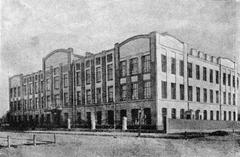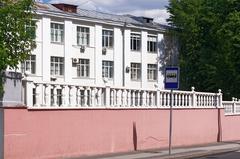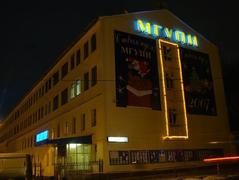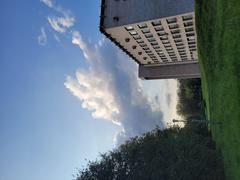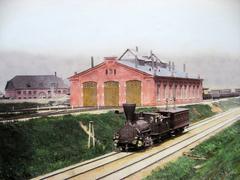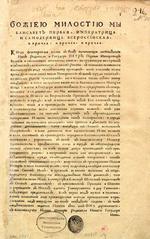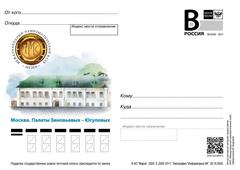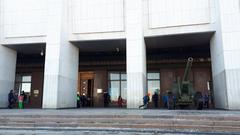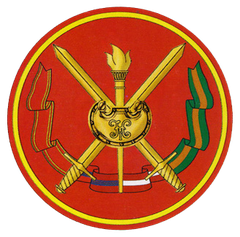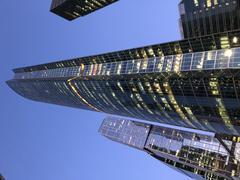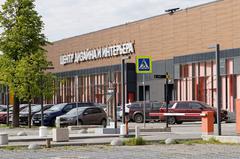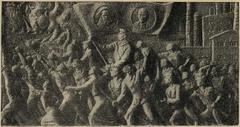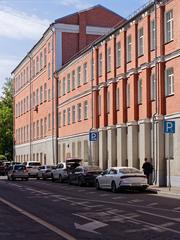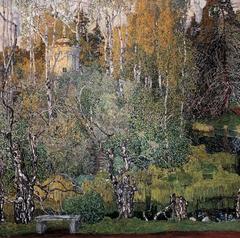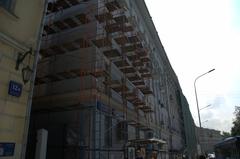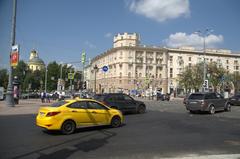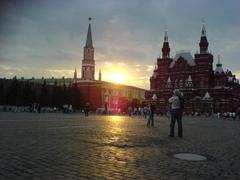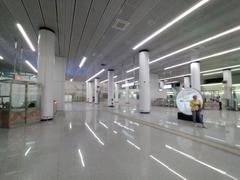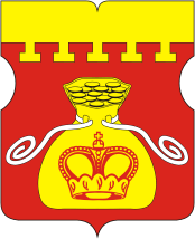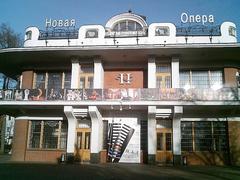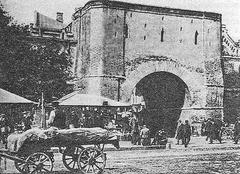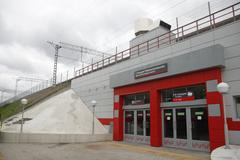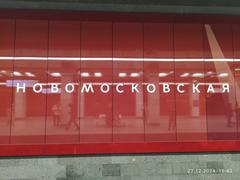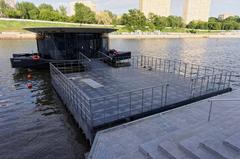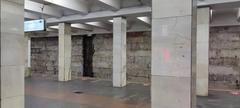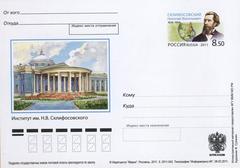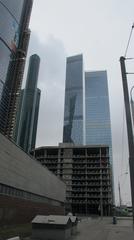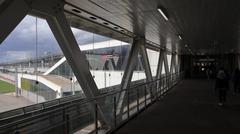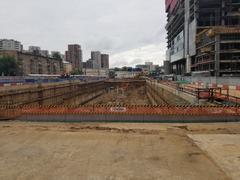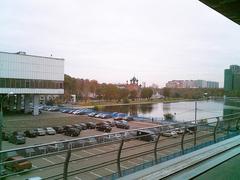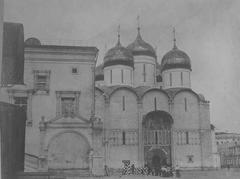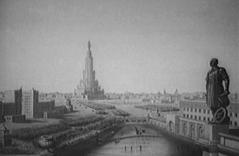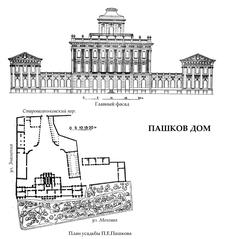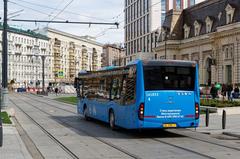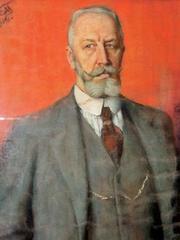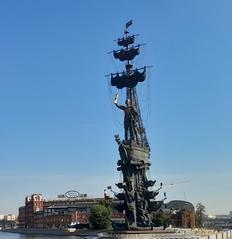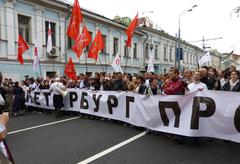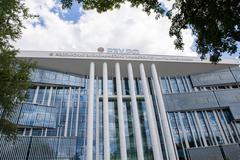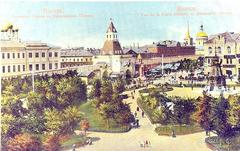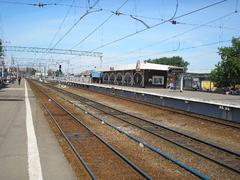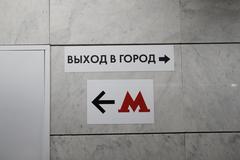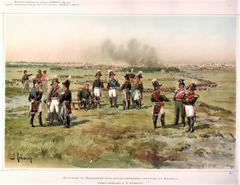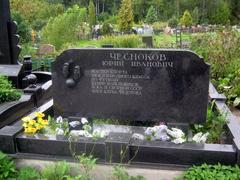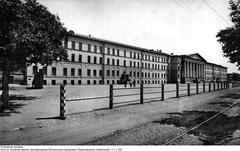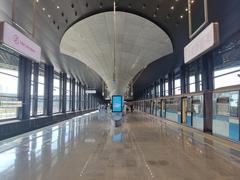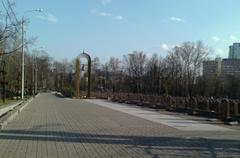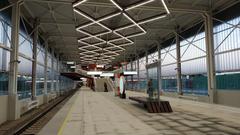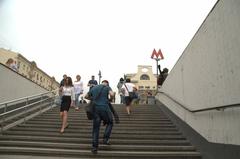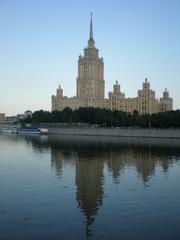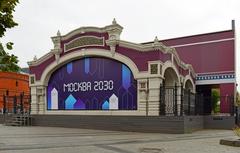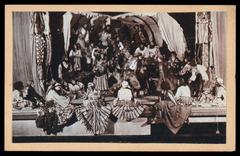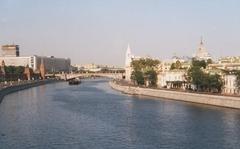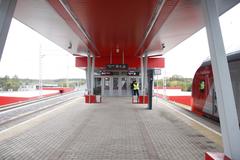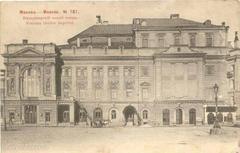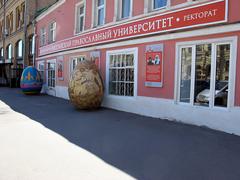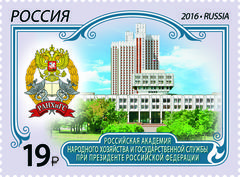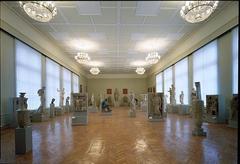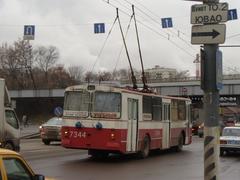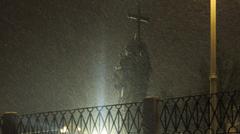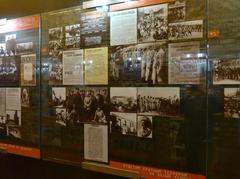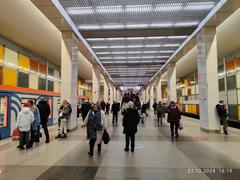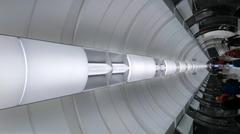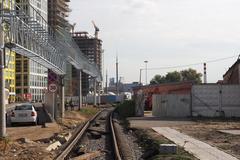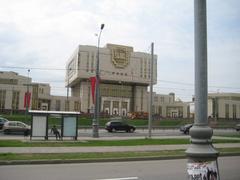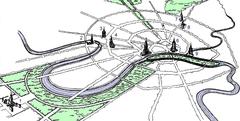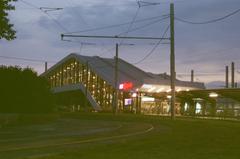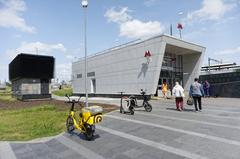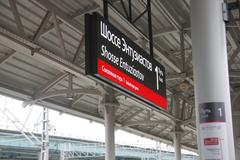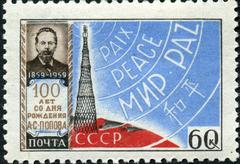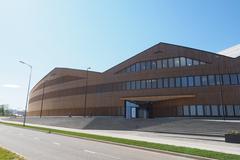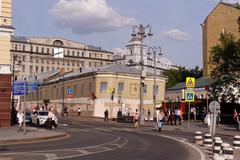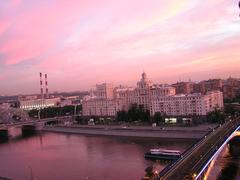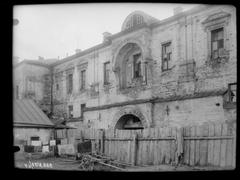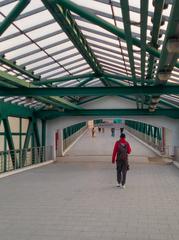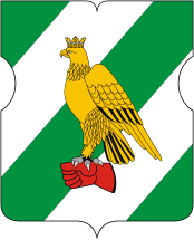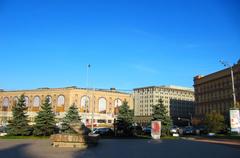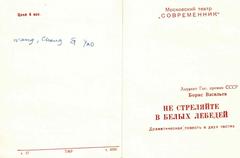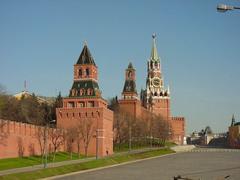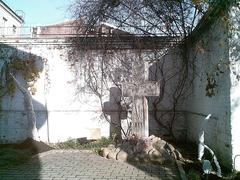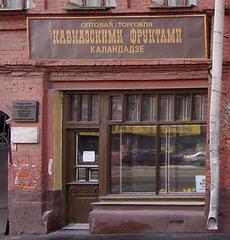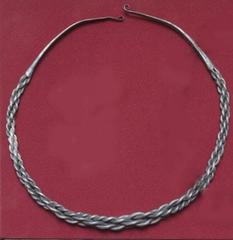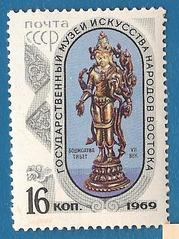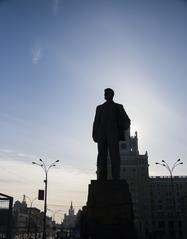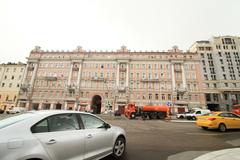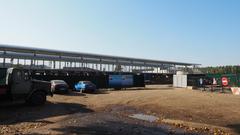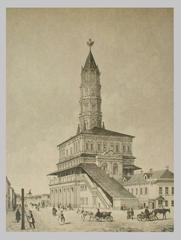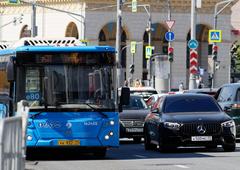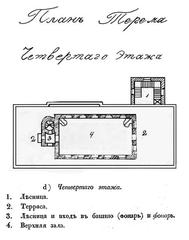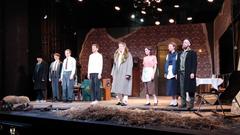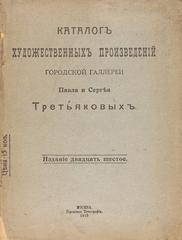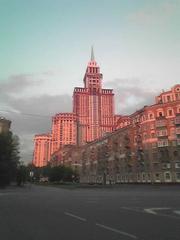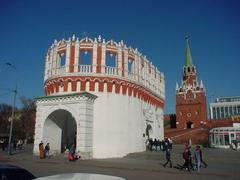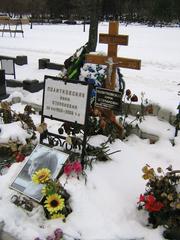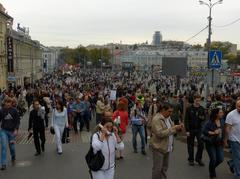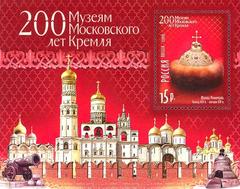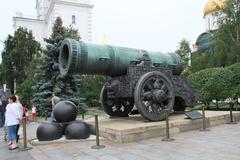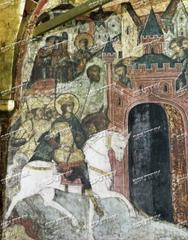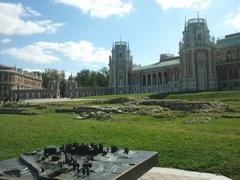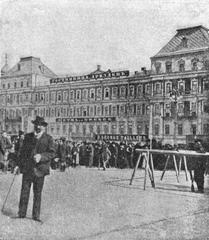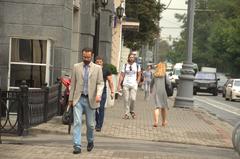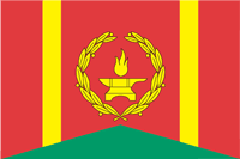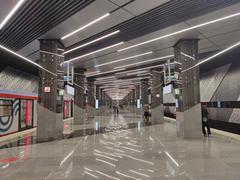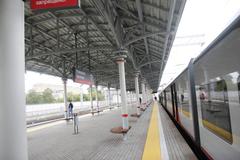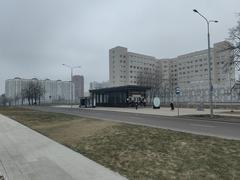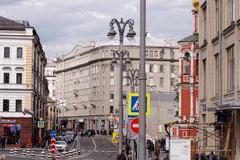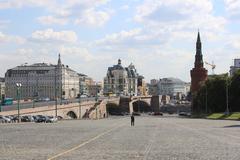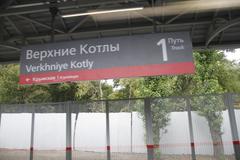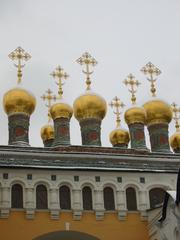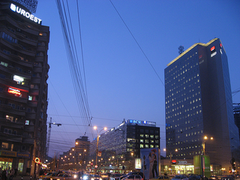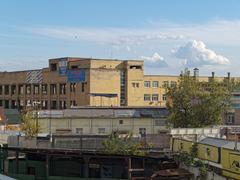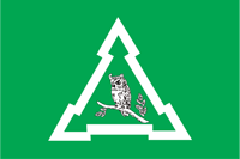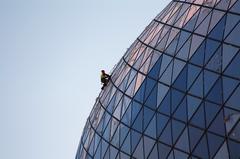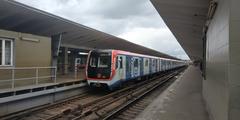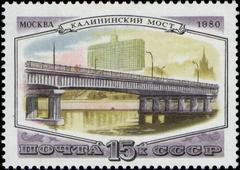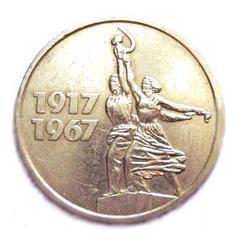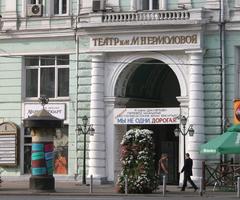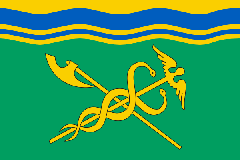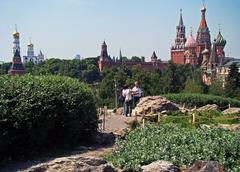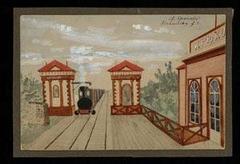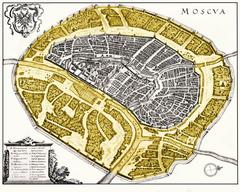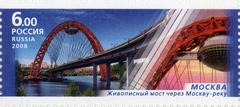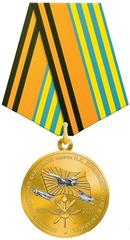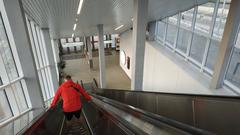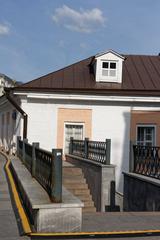Degunino Moscow Visiting Hours, Tickets, and Historical Sites Guide
Date: 04/07/2025
Introduction to Degunino: Moscow’s Northern Gem
Degunino, located in the northern part of Moscow within the Northern Administrative Okrug, is a district that offers a distinctive blend of history, suburban tranquility, and vibrant community life. While it lacks the monumental grandeur of central Moscow, Degunino presents visitors with a unique opportunity to experience authentic local culture, Soviet-era and modern architecture, lush green spaces, and easy access to major city attractions.
From its origins as a rural settlement near the Khimki River, Degunino has evolved through centuries of Moscow’s expansion. Today, the district encompasses Zapadnoye Degunino (Western Degunino) and Vostochnoye Degunino (Eastern Degunino), reflecting its administrative and demographic growth. With excellent transport links—including metro stations like Seligerskaya, Khovrino, Bibirevo, and Altufyevo—Degunino is an ideal base for exploring both local attractions and the heart of Moscow.
This guide provides an in-depth look at Degunino’s history, key attractions, parks, community events, visitor tips (including hours, ticketing, and safety), and practical travel advice to ensure a rewarding experience.
For further historical context, see World of History, Wikipedia Zapadnoye Degunino District, and explorecity.life.
Contents
- Introduction
- History and Origins
- Cultural and Community Life
- Key Attractions and Parks
- Visitor Information (Hours, Tickets, Tours)
- Transportation and Accessibility
- Nearby Moscow Attractions
- Practical Tips (Safety, Dining, Accommodation)
- Frequently Asked Questions (FAQ)
- Maps and Visuals
- Conclusion
- Sources and Official Links
History and Origins of Degunino
Early Settlement and Geographic Context
Degunino’s name is believed to derive from the personal name “Degunya,” following the Russian tradition of naming villages after individuals. The area’s earliest days saw it as a rural community near the Khimki River, surrounded by forests and meadows that once encircled Moscow. While Moscow’s history dates back to at least the 12th century (World of History), Degunino grew alongside the city’s northward expansion, developing unique local traditions and characteristics.
Urban Integration and Administrative Evolution
In the 19th and early 20th centuries, Degunino remained a peripheral, agricultural village. Moscow’s industrialization and population growth led to the absorption of surrounding villages, including Degunino, by the early Soviet era. The 1930s and 1940s saw Degunino incorporated into Moscow’s urban planning, with construction of residential and industrial zones accelerating post-World War II. Since 1997, the district includes the former Businovo area, improving local governance and expanding its territory (Wikipedia Zapadnoye Degunino District).
Cultural and Community Life
Social Fabric and Diversity
Degunino is home to a diverse population—long-term Muscovites, internal migrants, and international residents contribute to a vibrant, inclusive atmosphere. Local schools, kindergartens, and healthcare facilities support this diversity, while community centers and libraries offer educational programs, art exhibitions, and family events (explorecity.life).
Religious & Spiritual Landscape
The district features several places of worship, predominantly Russian Orthodox churches, which serve as both spiritual and community hubs. These institutions organize religious festivals, cultural events, and charitable activities, fostering social cohesion and mutual respect among residents of various faiths.
Artistic Expression
Degunino’s cultural life is marked by creative initiatives: amateur theater, music ensembles, street art, and public murals reflect both tradition and modernity. Local artists collaborate with schools and community organizations to stage exhibitions and performances, enriching the district’s artistic identity. Proximity to central Moscow allows easy access to major cultural venues while nurturing local talent (explorecity.life).
Culinary Traditions
Local markets and cafes offer a taste of Russia’s culinary diversity—borscht, pelmeni, blini, as well as dishes from Central Asia and the Caucasus. Community gatherings often revolve around food, with neighbors sharing meals and celebrating holidays together.
Festivals and Community Events
Degunino participates in Moscow’s citywide festivals, such as Maslenitsa, Victory Day, and New Year celebrations. Local schools and cultural centers organize performances, fairs, and educational activities, contributing to a lively calendar of events (thetouristchecklist.com).
Key Attractions and Parks
Parks and Green Spaces
- Lianozovsky Park: Open daily 6:00 AM–11:00 PM, this park offers walking/cycling paths, playgrounds, and seasonal events such as open-air cinemas and winter rinks.
- Degunino Park: A local favorite for walks, picnics, and community activities.
- Deguninsky Pond: Accessible year-round, this tranquil spot is perfect for birdwatching, photography, and winter skating.
Historical and Architectural Highlights
- Church of the Nativity of the Blessed Virgin Mary: Dating to the 17th century and rebuilt in the 19th, this Orthodox church features classic Russian architecture. Open daily 8:00 AM–7:00 PM; entry is free, and guided tours are available by appointment.
- Soviet-era Residential Blocks (“Khrushchyovkas” and “Panelki”): Walking tours reveal the district’s Soviet architecture and urban development (wewillnomad.com).
- Modern Developments: Recent urban renewal has brought contemporary residential complexes, public art, and upgraded amenities.
Markets and Local Shopping
- Degunino Market: Open 8:00 AM–6:00 PM, this market is ideal for sampling local produce, baked goods, and observing daily life.
Cultural Centers
- Degunino Cultural Center: Hosts exhibitions, workshops, concerts, and seasonal festivals. Check their website or social media for updated schedules and ticket information.
Visitor Information: Hours, Tickets, and Tours
- Public Parks and Community Centers: Open 6:00 AM–10:00 PM, generally free entry.
- Historical Sites (e.g., Church of the Nativity): 8:00 AM–7:00 PM, free entry; guided tours by appointment.
- Markets: 8:00 AM–6:00 PM, free entry.
- Guided Tours: Available for select sites by appointment; broader tours of northern Moscow can be arranged via official tourism portals or local operators.
- Nearby Attractions:
- North River Terminal: 10:00 AM–8:00 PM, free entry; river cruise tickets 500–1,000 RUB (We Heart Moscow).
- Ostankino Tower: 10:00 AM–8:00 PM; tickets around 500 RUB (holidify.com).
- VDNKh: 10:00 AM–8:00 PM, free entry; pavilion tickets start at 300 RUB.
Transportation and Accessibility
Degunino is served by several metro stations:
- Seligerskaya and Khovrino (Lyublinsko-Dmitrovskaya Line)
- Bibirevo and Altufyevo (Serpukhovsko–Timiryazevskaya Line)
- Verkhniye Likhobory for quick access to central Moscow (30–40 minutes travel time)
Commuter rail, buses, and official taxi services (Yandex, Uber, Gett) provide further connectivity. Metro rides cost about 55 RUB; a Troika card offers discounted fares (Wander Without Wheels). The area is accessible for travelers with disabilities—major stations feature ramps and elevators (Moscow Metro Accessibility).
Nearby Moscow Attractions
Degunino’s location makes it easy to reach:
- Red Square and the Kremlin: (10:00 AM–6:00 PM; tickets required for Kremlin)
- Saint Basil’s Cathedral: (9:30 AM–5:00 PM; approx. 700 RUB)
- Bolshoi Theatre: (ticket prices and showtimes vary; book ahead)
- Zaryadye Park: (open 24/7; free entry)
- Botanical Gardens and Sokolniki Park: (short metro ride)
- Ostankino Television Tower: (panoramic views and restaurant)
Practical Tips for Visitors
Safety
Degunino is considered safe, with low crime rates. Exercise standard precautions against pickpocketing, especially in crowded areas and on the metro (Travel Like a Boss).
Dining
Local cafes, bakeries, and canteens (stolovayas) serve affordable Russian cuisine. For a wider range, central Moscow’s restaurants are a short ride away.
Accommodation
Options include short-term apartment rentals and budget hotels. For more amenities, consider staying in central Moscow and commuting by metro.
Language and Communication
Russian is predominant; English is limited outside tourist hotspots. Basic phrases or translation apps are useful.
Money and Connectivity
Rubles are required; cards are widely accepted, but cash is handy for small purchases. Free Wi-Fi is available in metro stations, cafes, and malls. Local SIM cards provide reliable data (Russiable).
Weather
Winters are cold (down to -10°C); pack warm clothes. Summers are warm (18–25°C); light clothing recommended.
Accessibility
Public transport and attractions are increasingly accessible, but some older infrastructure may lack elevators.
Cultural Etiquette
Dress modestly in churches, greet formally, and follow Russian social norms for a positive experience.
Frequently Asked Questions (FAQ)
Q: What are Degunino’s public park hours?
A: Parks and community centers are generally open from 6:00 AM to 10:00 PM.
Q: Are guided tours available?
A: Yes, for certain historical and cultural sites by appointment. Broader tours can be arranged via official tourism sites.
Q: How do I reach Degunino from central Moscow?
A: Use the Lyublinsko-Dmitrovskaya Line, exiting at Seligerskaya or Verkhniye Likhobory; 30–40 minutes from the center.
Q: Are the parks and churches free to enter?
A: Yes; specific exhibitions or performances may require tickets.
Q: Is Degunino safe for tourists?
A: Yes, with standard urban precautions.
Maps and Visuals
Interactive maps highlighting Degunino’s key sites are available through official Moscow tourism websites.
Conclusion
Degunino offers a compelling alternative to central Moscow for travelers seeking authentic local culture, historical context, and suburban charm. With free access to most parks and cultural centers, a lively calendar of community events, and excellent metro connections, Degunino is both a welcoming neighborhood and a strategic base for exploring Moscow’s renowned attractions. Use the information in this guide, along with official resources and travel apps like Audiala, to plan a seamless and memorable visit.
Sources and Official Links
- World of History
- Wikipedia Zapadnoye Degunino District
- explorecity.life
- thetouristchecklist.com
- Wander Without Wheels
- How to Russia - Moscow Region
- Old Maps Online - Zapadnoye Degunino District
- Mapcarta Degunino
- We Heart Moscow
- wewillnomad.com
- thebrokebackpacker.com
- holidify.com
- Travel Like a Boss
- Russiable
- Express to Russia
- Moscow Metro Accessibility
- VDNKh Official Site

